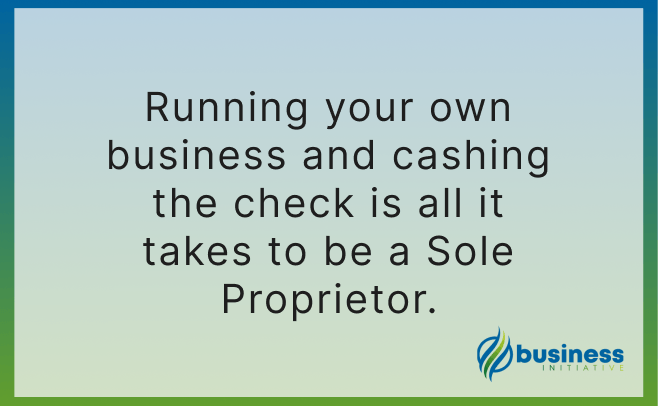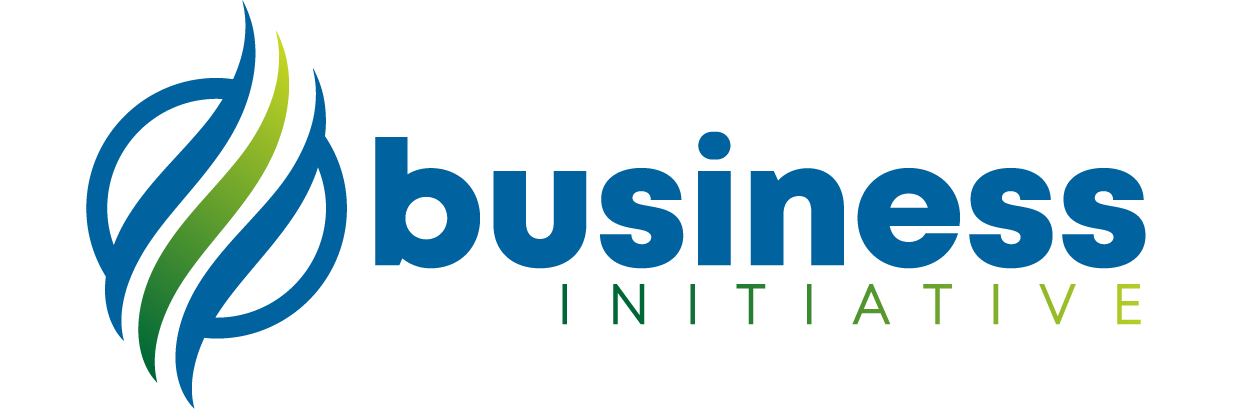Benefits of Sole Proprietorships 101
The easiest form of business to create is the Sole Proprietorship.
In a Sole Proprietorship, you are the “sole” owner and operator, responsible for any good or bad the business does.
 Key Takeaways
Key Takeaways
- Sole Proprietorships are easy to start, requiring minimal paperwork and no state registration.
- Sole proprietors enjoy complete control and ownership of their business.
- Dissolving a Sole Proprietorship is straightforward and hassle-free.
- Sole Proprietorships offer more privacy with fewer government disclosure requirements.
- They benefit from simple, pass-through taxation, avoiding double taxation.
It’s the simplest business entity because you are in total control of every aspect of the business.
Although you are restricted in being the only owner, you can expand and hire employees.
P.S. If you’re married you can form what is known as a “Co-Sole Proprietorship” with your spouse.
There’s no extensive registration process or start-up fees.
The licenses and permits you need all depend on your industry and the location where you’re operating.
Once you’re selling a product or service under your legal name…
You’ve got yourself a Sole Proprietorship.
You receive more control than Partnerships, LLCs, or Corporations where influence is shared with your fellow partners, members, or shareholders.
These entities also have complicated (sometimes expensive) State registration and maintenance requirements.
If you’re thinking of going this route, it’s important to speak with a lawyer and financial advisor before making binding legal and financial decisions.
Now that we’ve gotten the basics out of the way…
Here is a quick look at the Sole Proprietorship’s main benefits:
-
There’s no paperwork or State registration
-
Simplest and fastest business entity to set up
-
You have total control over every facet of the business
-
Dissolving the business is effortless
-
The easiest taxation method: The Pass-Though Process
Now let’s break them down…
(Almost) No Paperwork

Sole Proprietorships have hardly any maintenance requirements or paperwork, saving you time and money.
Owners of State-registered businesses have to use these precious resources to file financial records and other boring materials on a regular basis.
Here’s a few things you don’t have to worry about as a sole proprietor:
- Articles of Incorporation
- Articles of Organization
- Bylaws
- Operation Agreements
- Amendments to the original registration documents
- Shareholder contributions
- Stock ownership
- Balance sheets
- Accounting records
- Transfers of interest
- Business Income Tax Returns
- Formation and registration documents
- Business bank account deposit slips
- Business credit card records
- Meeting Minutes
- License and registration renewals
- Human resource files
- Annual reports
This list goes on and on…
By filing information and financial records with the government, it becomes public record.
This means anyone can gain access to it in person and, in most cases, online.
The good news is:
The most you’ll need for a Sole Proprietorship is an EIN (Employer Identification Number).
This is like an ID, but for your business.
You can get one if you want to, but most states don’t make it a requirement.
The only real forms and requirements depend on what you provide.
Some products and services require special training, licenses, permits, certifications, etc. in order to be sold.
This is on a case-by-case and state-by-state basis.
This gives you something which is becoming harder and harder to come by nowadays:
Privacy
You are not required to disclose and report every little thing to the government.
Only under special circumstances do you register a Sole Proprietorship with the State.
LLCs and Corporations, on the other hand, are required to keep the government informed of everything going on with their business.
➤ MORE: LLCs are a high-grade alternative to Sole Proprietorships
Maintaining a Sole Proprietorship long-term isn’t a problem either, as long as you know what you’re doing.
With everything relying on you and you alone, there is less government involvement over your operations.
You just have to deal with the consequences of your decisions.
The same can be applied to life.
Simple and Inexpensive to Create
Forming a Sole proprietorship is no sweat.

With so few restrictions, fees, and paperwork, Sole Proprietorships are quicker to set up than any other business entity.
There’s also the bonus of not having to pay initial and annual registration fees because, in most cases, you aren’t registered with the state.
As a sole proprietor, you are free from paying the registration fees LLCs and Corporations pay when starting out.
They also continue paying those same fees every year they’re operating.
Maximum Ownership and Control

The biggest reason why anyone picks a Sole Proprietorship over another type of business is the sheer power and responsibility you hold as the owner.
You are in total control of your profits and own every aspect of your company.
You don’t share control with Partners or Corporate Boards.
You are fully responsible for the success and growth of your business.
At the same time, this means you’re fully responsible if your business goes under.
Technically speaking…
You are the business.
This streamlines the entire decision-making process.
You don’t need approval from other members or shareholders to hire (or fire).
You call the shots on a day-to-day basis, taking the business in any direction you please, for better or worse.
Quick Dissolving Process
It is easy to terminate the business when you are legally considered the business.
All it takes to “close up shop” is to cease operations, sell the business and its components, or by dying.
Pretty simple.
Single Taxation: The Pass-Though Process

The Pass-Through Process is practically effortless.
To pay taxes as a sole proprietor, in most states, all you have to do is account for your business earnings alongside any other personal gains in your standard income tax return.
After all, you are legally viewed as the business itself.
It’s called the Pass-Through Process because all earnings are “passed” on to you as personal income.
It doesn’t matter whether it’s profits or losses.
This taxation method is preferred, especially if you have multiple streams of income, because any losses you incur can offset taxes from other personal profits.
The primary tax break you get as a sole proprietor is avoiding Corporate Tax.
So long as you meet certain criteria, you could receive additional tax deductions by counting employee wages as a business expense.
Alternatively, an ordinary Corporation undergoes a little process known as Double Taxation.
Corporations first pay Corporate Tax on business profits and then, once everybody gets paid, shareholders pay personal Income Tax on their individual salaries.
When you choose a Sole Proprietorship, you completely avoid Double Taxation.
You just pay Income Tax and Self-Employment Tax (a combination of Social Security and Medicare Taxes).
Your tax rate depends on the tax bracket you fall into when combining all of your personal profits.
➤ MORE: Find out if you may be subject to additional taxes.
Is a Sole Proprietorship the Right Business for You?
Any business you choose comes with its own host of positives and negatives.
The main thing is to pick the right type of business based on your current needs.
Just make sure you’re being realistic with where you’re at right now.
You probably don’t need a Corporation if you’re just starting out, but you might consider an LLC, if your business carries inherent risk.
Fortunately, with so many options available, you can always upgrade your status later.
At the same time, you might limit your growth if you remain a Sole Proprietor forever.
On behalf of Business Initiative, we wish you much success in your entrepreneurial journey!
Stay up-to-date with us and learn practical strategies to maximize your time and money:


